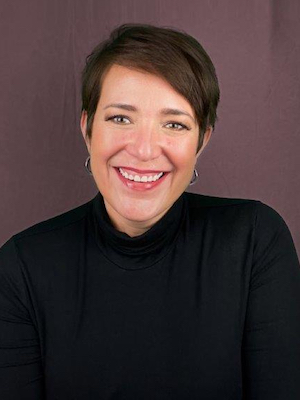
I’ve always been of the opinion that storytelling is the most powerful tool in a preacher’s toolkit. This is largely because I learned how to preach from one of the best storytellers I’ve ever met, Jim Somerville, who can spin a yarn like no other person I know.
But this conviction also comes from years of my own experience climbing up into the pulpit on Sunday mornings, opening an ancient text and facing the dubious looks of those waiting to hear exactly how old, tired words have relevance for their modern lives.
In my experience, if you throw in a decent joke, you’ve got about five minutes max to sell people on the message you’re trying to convey. You can hold their attention a little longer, though, if you can tell a good story.
Stories have a power far beyond even empirical evidence because stories are the vehicles by which we discover who we are, and even more importantly, they help us imagine who we might become.
My earliest memories include immersing myself in stories woven by masterful storytellers, and I’ll bet yours do, too.
I remember my grandmother sitting at the kitchen table telling us (again) the story of when the Queen stopped her carriage to greet my grandmother during the Kamehameha Day parade — which, who knows if that is true, but 50 years later I’m obviously still telling it.
Island of the Blue Dolphins, From the Mixed-Up Files of Mrs. Basil E. Frankweiler, A Wrinkle in Time: I loved these stories, I thought, because they gave me a place to escape situations that felt sad to me, circumstances I couldn’t control.
What I didn’t realize then is that I was also reading those stories looking for threads of my own story, for something to grab on to so I could find a narrative that would tell me who I was and maybe even who I would become. I was seeking a tool that could help me discover the intersection at which my little story fit into a larger, collective story.
The best preachers and leaders weave stories that help individuals run the threads of their lives into the loom of our Creator, the one who is always pulling, pushing and twisting the realities we live and the possibilities we hope for into something so much more beautiful than we could ever have imagined.
What can then emerge, if we’re open to the possibilities, is a new story: not a story imprisoned in ancient words, but one that ties deep and eternal truths to the day in and day out of our seemingly insignificant human lives, a story that offers us hope.
And a story, if it’s told and lived well enough, can be the engine that fuels the imagination and creates possibilities that can change the course of our collective existence.
How exactly does the arc of the moral universe bend toward justice? By telling and retelling, then living, believing and building together, we can actually become a different story, one that does not end abruptly in the dust of hopelessness, sorrow and death.
Stories are so powerful because they shape identity, and every individual is both a contributor and reflection of a collective story. So, the stories we tell about ourselves and about our communities are so critically important.
It may not surprise you to know that I feel an urgent dissatisfaction with the story we followers of Jesus are telling these days.
Those of us who formally claim those ancient words as modern narrative have put our story in the hands of storytellers with limited imagination, or we’ve missed a few critical pages, or maybe we’ve just given up on the possibility of a different ending than we see right in front of us.
Exclusion, Christian nationalism, violence, scarcity and death have become the themes of the Christian story I keep hearing. But these themes do not reflect the message of Jesus, who told story after story about possibility and reconciliation and abundance, so much more than enough for everybody to thrive.
As the institution that has held our story for long before our lives began and whose future we cannot yet see continues to shift and change, we are longing for a story to hang onto.
If you are someone whose life is woven into the story of the church, please, for the love of all that is holy, do not cede this story to voices with no ability to make, and no interest in making, that story come alive.
Instead, be like a new friend of mine, an Episcopal priest well into his career and intensely familiar with the story of decline we’re all hearing these days.
He recently said to me: “I don’t know about the future of the church. The older I get, the more sure I am that I don’t know much about most things. But here is why I need the church: because it’s a place that tells me that what I thought was dead is actually alive. And I can’t live without that story.”
Now that’s a story I want to tell and hear and believe and live, a story that can completely shift the ending we’ve predicted.
Let’s tell that story, imagining a world in which all the things we thought were dead actually live, and then let’s get busy changing the next chapter.
Founder of Invested Faith, she previously served as pastor of several churches, including as the seventh senior minister and first woman at the helm of The Riverside Church in the City of New York. Butler holds degrees from Baylor University, the International Baptist Theological Seminary and Wesley Theological Seminary. She is a contributing correspondent at Good Faith Media.

